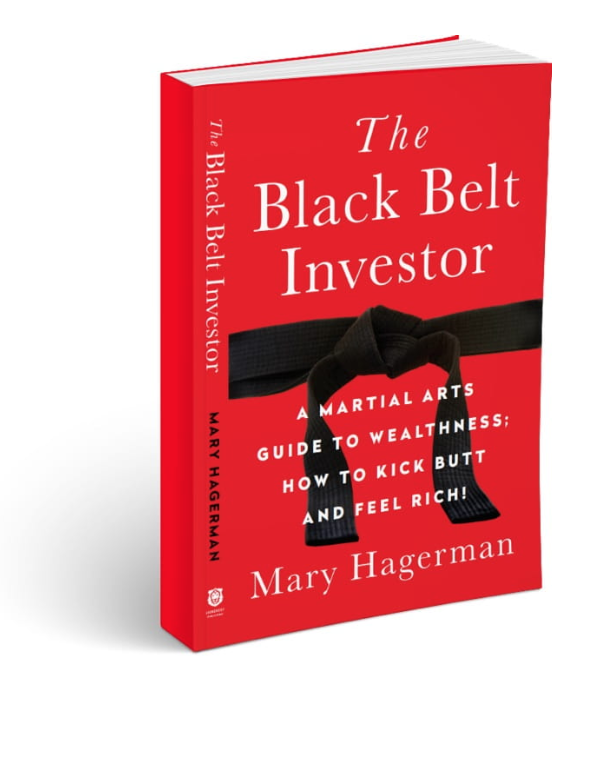A lot of the structural framework of the financial services industry is built around male-focused thinking. Male clientele tend to be more interested in topics such as macro and how the market is doing, getting into the guts of investments they own, such as ETFs, stocks, and wanting to have that discussion around their money and around their investment holdings. Historically the business has geared itself around these topics. The thing is, this is not necessarily what women hope to sit down and discuss with advisors every single time they meet. Women tend to be more goal-oriented, more concerned about their future plans, their wishes and their dreams, and things that they want to accomplish with their money. Perhaps part of the problem stems from the training programs of the past, where advisors were trained to talk about investments with their clients in a more technical way rather than the context of an individual's goals. That is where financial planning has come in over the last 20 or 30 years. With more women taking control of their own and their family's finances and wealth, money managers have to continually improve the way they're marketing their services to women.
 The disconnect between women and financial advisors can create money anxiety, however, you may find that there is a cure for this: Mary Hagerman, is a Portfolio Manager and Senior Investment Advisor, at The Mary Hagerman Group, and author of the bestseller, "The Black Belt Investor: A Martial Arts Guide to Wealthness; How to Kick Butt and Feel Rich!", talked to us in a recent interview about this very thing.
The disconnect between women and financial advisors can create money anxiety, however, you may find that there is a cure for this: Mary Hagerman, is a Portfolio Manager and Senior Investment Advisor, at The Mary Hagerman Group, and author of the bestseller, "The Black Belt Investor: A Martial Arts Guide to Wealthness; How to Kick Butt and Feel Rich!", talked to us in a recent interview about this very thing.
With over 30 years of experience, Mary has guided thousands of clients and their families on the road to financial freedom. She is the definition of a tenacious woman who has created a name for herself amongst the sea of men who dominate this industry.
Mary Hagerman takes us on an educational journey through the process of approaching women as a financial advisor.
AdvisorAnalyst: You’ve had over three decades of experience, and in that time, you've obviously had plenty of time and experience to learn what works and what doesn't work in the case of married couples and how that works.
Mary Hagerman: Don't assume that if you're dealing with a couple, that you'll even see the wife at the meeting. I put a lot of effort into getting the wife to come to the meeting with the man. I tell them that because it's just so important that the wife be part of the planning process, even if she perhaps initially doesn't care much about how the investments work and the dynamics of portfolio management, for sure she cares about how this money will serve to make them prosperous and happy, right? What will their financial objectives be in the future? Depending on the age of the couple, what estate planning considerations might they have? So these are all points that if you don't have both of them in the room, you can’t really do justice to or pretend to have done serious good work for your client.
“We have a very daunting statistic that shows that 70%, I believe, of women who inherit from their husbands when they pass away first will change advisors. That’s been a wake up call to anybody who's been in a situation where they have the elderly couples and the fellow has passed away.
Many women are taking their place in the business world right now and making serious money. We're up there playing the same game as the guys and we deserve to have our money handled, managed the same way anybody else would, and to be prosperous and happy the same way any guy who is successful in his job would want to be.
So all of this is changing and it's been a big wake up call for the financial services industry. And the industry has always kind of gravitated to where the money is, right? Well, now the money's across the table. It's not just in the guy's pocket, it's in the woman's pocket, either because she's going to, in many cases, inherit all of it, or because she's making as much as a guy and sometimes more. This is a perfect time to talk about what do we do to make sure that women are being well served in the industry?
AA: Yes, make sure you have everyone in the room. You have husband and wife in the room or both parties in a marriage in the room, for the conversation, from the very beginning.
MH: I also want to stress to the fact that different ages require different sort of approaches. My clients ask me to work with their children, and young women who are starting new careers, when they want to talk to me about their money, I always ask them, “Are you in a relationship or partnership with anyone that requires you sharing expenses?” Well, talk to me about it. How do you see that? Who's paying what? Is it half and half?
AA: So, when you're dealing with couples who are in their retirement years or nearing their retirement years, is it harder to get both parties in the room?
MH: I let all of my male clients know that I want to meet their wives. If they say they don't have time, I will offer to meet them at their homes. I also have client activities where they will be non- business related, but they offer me an occasion to meet with the wife. And if that can happen, then I say, “It’s so nice to meet you. I've really been asking your husband, it would be so great if you come to our meetings. Do you have an email address, I could send you my newsletter too, and maybe we could start to get to know one another that way? And in the meantime, I'm going to send you a copy of my book and I'd love to hear what you think about it.” That sort of fosters that, “Oh, you know, that Mary, she's really nice, and next time you go out for lunch with her, I'll go.”
AA: How does that work out for wealthier clients?
MH: There can be situations where if the client is wealthy and very busy, that I'm dealing mostly with an accountant, and those are prickly situations because then you have to jump over the
accountant to get to the client to get to the spouse. I spoke with a woman who was getting a divorce from her husband, who had his own business and had several tens of millions of dollars. And she said to me, “You know, Mary, I've never even had to write a check. I just looked after the charity work that we do as a couple.” That was her only knowledge of dealing with money.
So, I won't speak for all the billionaires of the world or multi multimillionaires of the world, and that can create a situation where the woman is even more removed from the finances of the couple.
AA: You’ve got a new client coming to see you—husband and wife. What is your initial meeting like?
MH: The terminology might change if her investment knowledge is very low. I take that into consideration so that she doesn't get lost in the conversation. Certainly if it's a first meeting, it's an exploration meeting. The questions might be more open ended so that she has a chance to talk more.
If I say things like,
-
“Tell me about what your experience has been dealing with money?”
-
“How do you talk about money when you and your husband are talking at home?”
-
“How do you budget together? Do you do a budget?”
It gets the woman talking a bit more. An exploratory meeting is like,
-
“So who are you?”
-
“What makes you tick?”
-
“What is it that you're looking to get out of life to be prosperous and happy?”
-
“How much have you invested to date?”
-
“What's your income?”
-
“What are your debts?”
I also try to get an idea of the relationship because that is going to help me decide going how open I can be with the couple. It can take some time to really get personal with people so that you can really do a good job.
AA: You have to be careful too, right? Because initially you don't know them, they don't know you. Just like any, any relationship, if you don't allow it to happen at a natural pace, then you could either seem overbearing or, or insensitive on the other side.
MH: I do like to gauge how [my clients] are feeling, how [they’re] feeling about money. Certainly COVID brought on a lot of kind of deep and tender discussions that people wanted to have with me, right? I also want to know too, how healthy people are. I'm very into the health and wellness part of things too. Hard issues are so commonplace. It's important if you want to also discuss insurance planning with clients. These are questions and things you have to know. There's a time and place for everything. I do like to be able to delve a little bit deeper into things. And I find ways to do it on a different level. Sometimes I have to circle back individually to one member of the couple to verify things. Never make anyone feel that they can do anything on your behalf because you're really opening the door to possible exploitation down the road. I'm very honoured when people, have these sort of moments of trust. I say if they're doing it with me, then maybe they're doing it with their lawyer, their accountants, or somebody who who might cut corners or not do things as well as they could because they figure, “Oh, well she trusts everything I do so I can do anything.”
I am the black belt investor. I don't mind a good fight, but sometimes I have to stop myself from pushing too hard. Sometimes I sense that I’ve asked a woman to do about as much as she can do to be on top of things and I have to back off because if I keep pushing, it's going to blow up in my face. I recognize that, and that's not the client’s fault, that’s my fault.
“I want my women to kick butt and be rich.
AA: There’s also women outliving men in general, divorced women, independent women. Do you approach single women clients differently?
MH: It’s basically the same approach. Helping someone be prosperous and happy is pretty much the same no matter who it is. It's just how you use the tools and what's going on in their life and how the conversations take place based on that. The best conversations about money are between people who are civil. So women who are alone or divorced often have a much greater interest in a financial plan in the idea that they want to know how the money is going to work for them over time.
AA: Conversations that have a powerful trust building component implicit in them, you know, the kinds of questions that you ask and, and the way that you build your relationship with your clients can make a huge difference in that equation for both, both men and women. I imagine that, that over time, that sort of relationship barrier flattens anyway, right?
MH: For sure, and I think too that—I haven't read any statistics on this—it makes it harder for a client to leave you. So yes, that's another big thing because I delve into these different things. You know, you want to remember, did the cat die? How are their parents doing? Women are caregivers for usually several generations or a couple generations, right? And it weighs on them.
AA: That kind of relationship building is terrific for the longevity of your business. I'm saying that because our audience, we're speaking to advisors. It just makes enormous sense.
MH: People feel so good when they come away from a meeting feeling understood and heard. It's so important. I will say something about how the business has evolved in favour of this. I think too much of the financial services business for too long was geared on how much money you are making, the longer our client spends in your office, the more time it takes and the less money you make.
If you go back to when I started in this business and things were pretty much just transactional at that point, somebody would call you up to do a trade. You wouldn't be asking, “How's the wife, how's the kids? How's your health? You sure you got enough money for this?” Now a lot more advisors like myself have become discretionary. We have models that we put the clients in and we spend time on our models so that when we're with the client, we don't have to look for permission to trade. We don't need to, every time we transact, be calling up a client and saying, “Okay, so are you okay if I sell 20% of your US and buy, 10% Canada and another 10 cash?” It's made a real difference and the firms have woken up to the fact that this is the best type of business that you can have going forward. It's these relational businesses, which are fair in the sense that people are getting paid.
AA: It must be the most exciting thing—when a connection is made. Are there any other— specifically in dealing with women—‘aha' moments? Or is that sort of universal?
MH: In these prejudices that we could have with regards to women and her right to be at the table with the guy, you have to throw away all of these stereotypes and the ageism too of dealing with women. Because women now are extremely vibrant in their '50s and ‘60s. I read this statistic of most new businesses started by women are started when they're over 60.
Don't quote me on it, just like new businesses being started by women, these are all older women. So, underestimate the potential of a woman at any age to be extremely vibrant and financially viable. I also think that the use of social media, different resources like that for women changes across the age, but is still pertinent. I think advisors should be aware of the fact that women like to be addressed over social media and with specific female content too.
AA: Are there any specific key touch points that you've found can really light up a conversation?
MH: Well, certainly women like to talk about their dreams and their future plans. Women, I think are much more likely to have in those dreams, other people that they care about who they love. I find that women are much more prone to go for the total financial planning services. They get it, if I can do the whole nine yards for them, they want it.
Copyright © AdvisorAnalyst.com














